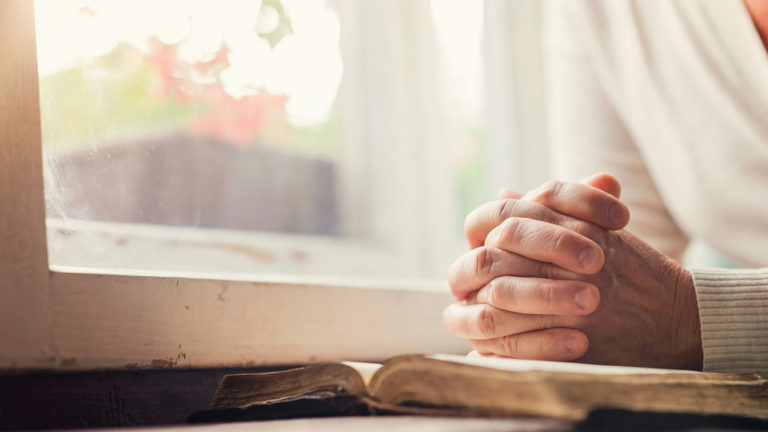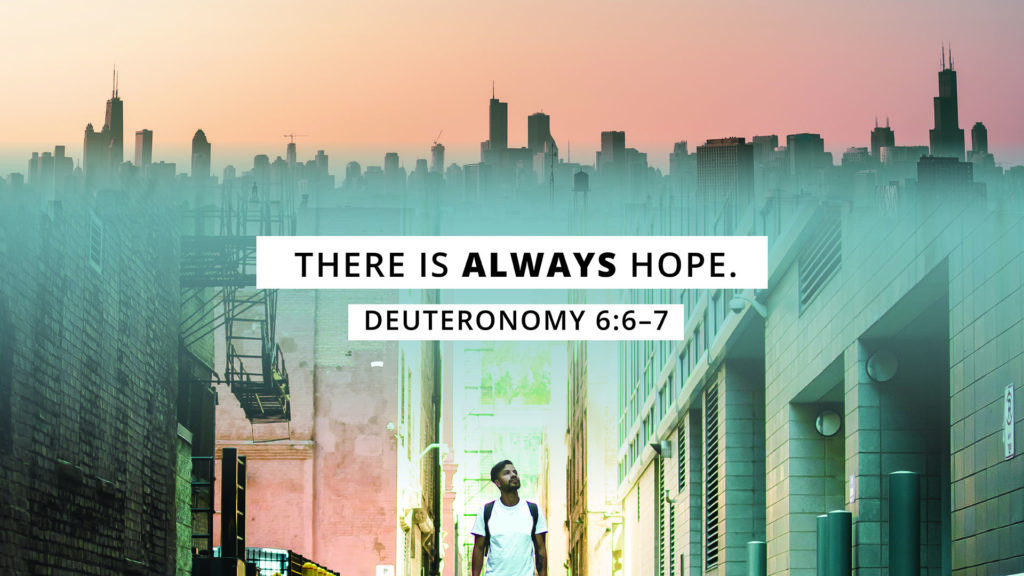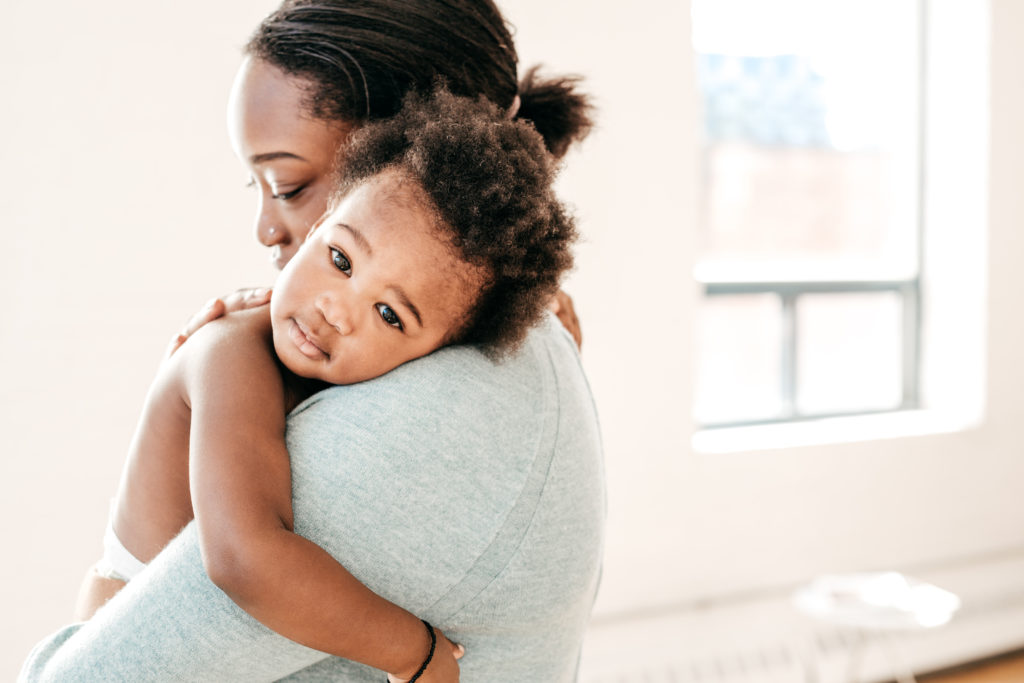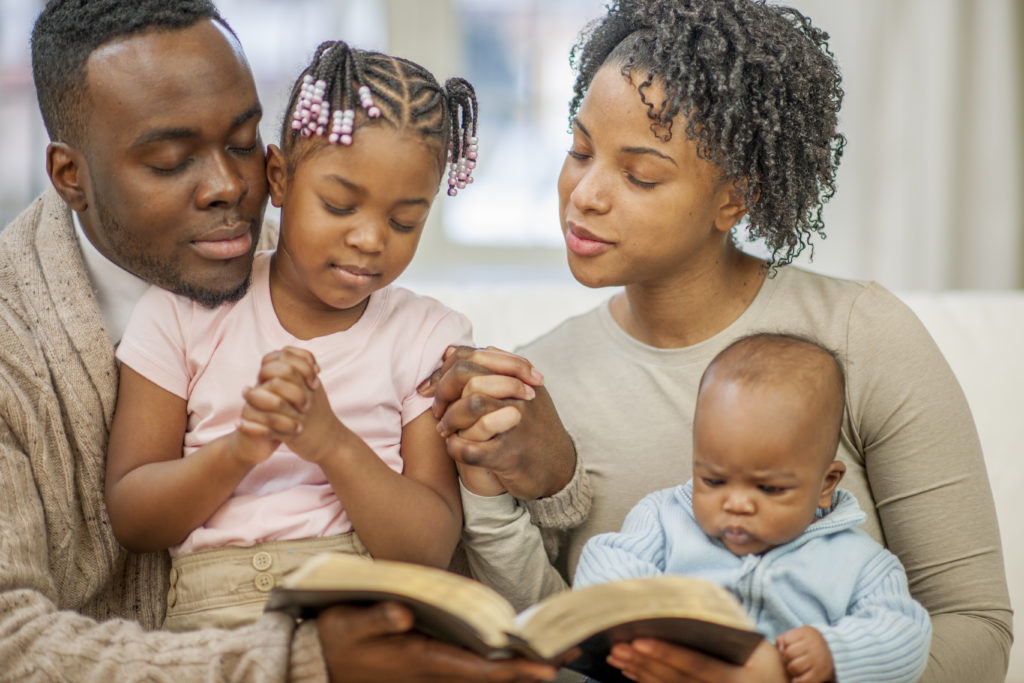Looking to strengthen your relationships? Abide can help. Download the app for Christian meditations on relationships specifically designed to foster love, understanding, and forgiveness within your connections with others.
Happy Father’s Day! At Abide, we don’t underestimate the importance of fathers. Take time today to rest in the comfort of the greatest father of all time—our Father in Heaven, God. In him, there is no evil, no pain. Breathe in that truth. Whether you’re a father, you need a father, or you’re celebrating a great father in your life, press into the father of all fathers today—our Creator. Allow God to provide the guidance and restoration that you need.
We know that fatherhood looks different for everyone, which is why we’re especially excited to invite you to participate in this dramatized testimony and prayer featuring father and producer Lee Habeeb. In 2021, Lee produced the film The Streets Were My Father—a heart-wrenching story of three men and their journey from fatherlessness, to gangs, to life in and out of prison.
As you click play on this redemptive story below, listen as Lee talks about the importance of fathers in the world today. “While the impact of godly fathering is critical, the wounds and traumas from absent and abusive fathers are profound,” Lee explains, “Millions wrestle with their relationship with their father.”
Listen to the 18-minute recording featuring Lee Habeeb and one of the street kids, Carlos, featured in the movie, by clicking play below.
*trigger warning: gunfire is heard in the background at several points during Carlos’ testimony.
Lee Habeeb is not only the producer but also the founder of American Private Radio and host of Our American Stories—a national radio program. We had the opportunity to sit down with Lee and listen to him talk about his own dad and the importance of fathers.
What was your inspiration for this movie?
LH: Fatherless homes correlate with numerous societal blights, including poverty, drug and alcohol abuse, teen pregnancy, crime, behavioral problems, and more. This film’s three male subjects knew it all too well. The Streets Were My Father traces the lives of three men—one black, two Hispanic—who lacked fathers in their lives. All three fell into the vortex of statistics involving children and especially boys when their fathers are not around.
- 85% of youths in prison grew up without a father
- 90% of homeless and runaways grew up without a father
- 71% of high school dropouts lack a father in the home
And 70% of Americans believe fathers matter in a child’s life and absent fathers are our greatest social problem.
The three men in The Streets Were My Father grew up with no guidance, no structure, and no future. All three ended up being men of the streets, doing and dealing drugs, shooting people and getting shot in criminal violence, running from the police and disrespecting authority, living meaningless lives of self-destruction. They had no one around to tell them that what they were doing was wrong, and other things they could do were right. They were career criminals looking at a hard time and short lives.
That’s because the streets of inner-city Chicago, with its valueless nihilism and its violence and lack of respect for life, raised them. But all three transcended their circumstances and their crimes. The Streets Were My Father tells their stories. It’s this stark reality of fatherlessness in our country that serves as the inspiration. Fathers matter. What these men learned is that though their earthly fathers were gone, their Heavenly Father was there all along, ready to love and change them and turn their hard lives around.
What was your relationship like with your father?
LH: I’m one of the privileged ones. Growing up, I had my dad very present. He provided for us. Put a roof over our heads. Put food on the table. And he expected things of us. He expected us to do our best. To be good students. Good people. My parents got married right after Dad graduated college, but they never took time to be a married couple. There were always kids. By the time he was 30, he had four of us to take care of. Was he ready for it all? Couples didn’t ask that question in the 1950s. They were probably better off. No matter how long we delay such things, we’re never ready.
I remember as a kid looking at pictures of him before he was the man he became. He looked like a grown-up even in his high school yearbook. As did most of his peers. What were his dreams? The child of immigrant parents, he didn’t think much about such things. His generation was too practical. They didn’t sit around talking about how to change the world. They were too busy trying to change their world. My dad’s life was a slice of the American Dream. A rental house every summer at the Jersey Shore. Family night at the drive-in movies. A pool in the yard. And a basketball court over the garage.
What kind of dad was he?
LH: He didn’t just provide materially for us: he was always there for us, too. He was an old-school dad. There wasn’t a lot of hugging. Or praise. On the rare occasion, he said something nice, it meant something. “Not bad,” he would say after a good effort. If it was a particularly good effort, he would say “not bad” twice.
He wasn’t a man who looked back on life with regret. He had little use for taking his own temperature. He had a temper. I was afraid of him, but not physically. I was afraid to let him down. Disappoint him. When he yelled, it made me tremble. His temper had that kind of power. I remember the fights he had with my mom. I never understood what the fights were about. What kid does? They probably didn’t know, either. Sometimes, I thought one of them would just call it quits. But always, the next day came. They carried on.
As time passed, the temper faded. As my dad got more comfortable in his own skin, as he was better able to navigate his own emotions, he got calmer. Meet him today, and you’d call him laid-back.
What was your parents’ relationship like?
As I got older, I came to appreciate the small things, the daily habits and rituals that my dad and mom shared. Those rituals and rhythms of life gave me a great sense of stability. A great sense that relationships can last. That love can last. The coffee he started for my mom every morning. The daily run to the supermarket. The evening coffee out by the pool, listening to WOR on the transistor radio. The early dinners at a local bar for pizza and mussel marinara. The card games, which mom always seemed to win. The habits of love were there for me to observe. And imitate.
The love I witnessed didn’t look like anything I saw in the movies. It looked like something better. Something within reach. The constancy. The consistency. The mutual understanding. None of it was terribly exciting. But it was good for me. It was good for my parents, too.
As you pray and meditate on fathers this Father’s Day, we invite you to start conversations about fathers in your community. With God, there’s always hope, as Lee Habeeb knows firsthand. When you’re ready, watch The Streets Were my Father in its entirety. And then pray for fathers everywhere to turn to God and be there for their families. As Malachi 4:6 says: “He will turn the hearts of the parents to their children, and the hearts of the children to their parents; or else I will come and strike the land with total destruction.”
Click here to stream The Streets Were My Father.
For meditations about fatherhood, download the Abide app in the App Store or Google Play, create a premium account, then check out these meditations:
- Daring Dads of the Bible: Noah
- Daring Dads of the Bible: Job
- Daring Dads of the Bible: Abraham
- Daring Dads of the Bible: Joseph
- Daring Dads of the Bible: Moses








